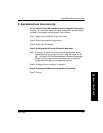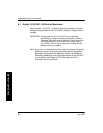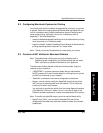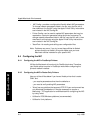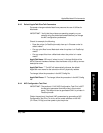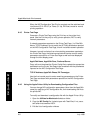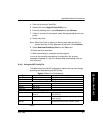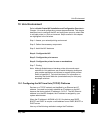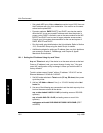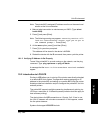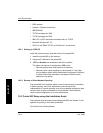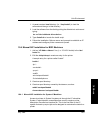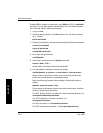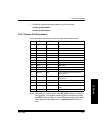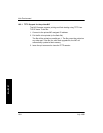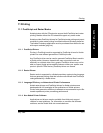
Unix Environment
10-2 July 1998
U
N
I
X
¥ Set a static ARP entry. Make a telnet connection to port 2002, then set
the IP address with your Unix workstation. You must be on the same
subnet as the printer/NIC.
¥ Dynamic methods, RARP, BOOTP and DHCP, can also be used to
allow the NIC to use an unused IP address each time the printer is
power cycled. RARP is limited to use on the same subnet as the NIC.
BOOTP and DHCP can be used in larger networks across routers.
Consult your Unix system documentation for the use and syntax of
RARP, BOOTP and DHCP.
¥ Run the install script distributed on the Unix diskette. Refer to Section
10.3, Printer/NIC Setup using the Install Script, for details.
¥ Additional methods for setting an IP address from non-Unix platforms
are covered in Chapter 3, FastManage, and Chapter 9, Apple/
Macintosh Environments.
10.1.1 Setting the IP Address Using Arp and Telnet
Arp and Telnet work only if the device is on the same subnet as the host.
Once an IP address is set, you cannot change it using Òarp.Ó You must
use a NIC conÞguration utility to change it unless you reset the NIC to
factory defaults.
To add a printer named ÒkodakÓ with an IP address Ò123.4.5.6Ó and an
Ethernet address of Ò00:40:c8:01:02:ABÓ:
1. Set NIC mode switches in Telnet mode (D1 up, D2 down) then power
cycle the printer.
2. Add an Ò<IP Addr> <Name>Ó line, (i.e. 123.4.5.6 kodak) to the /etc/
hosts Þle.
3. Use one of the following arp commands to set the static arp entry for a
host on the same subnet as the device:
arp -s ether kodak 0:40:C8:1:2:AB (no leading zeros on RS-6000
systems)
arp -s kodak 0:40:C8:1:2:AB (no leading zeros on most Unix
systems)
arpbypass set kodak 0X00.0X40.0XC8.0X01.0X02.0XAB (AT&T
and NCR)



